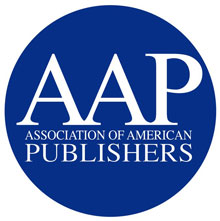August 23, 2019
Association of American Publishers Responds to Audible: Asks Court to Enjoin Planned Infringement of Literary Works

Washington, DC, August 23, 2019 – Today, the Association of American Publishers (AAP) asked the United States District Court for the Southern District of New York to enjoin Audible, the world’s largest digital audiobook distributor, from providing to its audiobook consumers the entire machine-generated text of literary works without any authorization from, compensation to, or quality control by the copyright owners. The lawsuit, which names seven AAP member companies as plaintiffs—Chronicle Books, Hachette Book Group, HarperCollins Publishers, Macmillan Publishing Group, Penguin Random House, Scholastic, and Simon & Schuster—was filed in response to recent public statements from Audible, in which it announced its planned rollout of a feature called “Audible Captions.” The feature is designed to transcribe and display the text of narrated performances, which are embodied in thousands of audiobook sound recordings that Audible has otherwise been authorized to distribute.
“We are extremely disappointed by Audible’s deliberate disregard of authors, publishers, and copyright law,” said AAP President and CEO Maria A. Pallante. “In what can only be described as an effort to seek commercial advantage from literary works that it did not create and does not own, Audible is willfully pushing a product that is unauthorized, interferes and competes with established markets, and is vulnerable to grammatical and spelling inaccuracies —it is a disservice to everyone affected, including readers.”
The complaint filed with the Court today asserts claims of willful copyright infringement against Audible and documents the company’s efforts to take for itself cross-format features that incorporate both audio and electronic text, outside of the careful decision-making, financial participation, copyright protection, and quality control of copyright owners. Moreover, the captions risk an error rate that stands in stark contrast to the high-quality and carefully-proofed eBooks that publishers produce, and for which they acquire exclusive electronic rights. The complaint contrasts Audible’s machine-generated text with existing offerings, including Audible’s own “Immersion” feature, which also provides text and audio simultaneously, but operates lawfully—and without errors— due to the permission, cooperation, and financial participation of the books’ underlying creators.
As noted in the lawsuit, publishers invest many millions of dollars each year to support authors and disseminate books, including by producing the most sought-after audio narrations that make Audible’s catalog both possible and popular in the first place. That Audible plans to move forward unilaterally with infringing text, despite the objections of the AAP, its members, and the Authors Guild, is deeply concerning, leaving the plaintiffs no choice but to seek a preliminary injunction to avoid irreparable harm to their present and future copyright interests.
The AAP and publishers are represented by Dale Cendali of Kirkland & Ellis LLP.
About AAP
AAP represents the leading book, journal, and education publishers on matters of law and policy, advocating for outcomes that incentivize the publication of creative expression, professional content, and learning solutions. As essential participants in local markets and the global economy, our members invest in and inspire the exchange of ideas, transforming the world we live in one word at a time.
